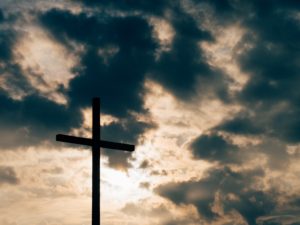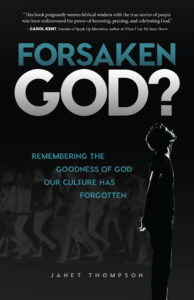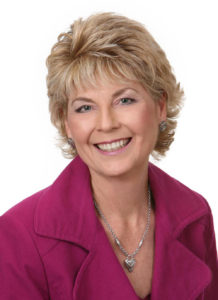
Photo by Ludovic Migneault
AS I SAT at the kitchen table before breakfast, reading an article in the Wall Street Journal, I was thoroughly baffled. The article debunked everything our culture had been telling us about what is nutritious and what is not nutritious for the past 30 or 40 years. Hadn’t this all been scientific certainty? Everyone agreed on it. There had been scientific studies. It came from the experts. How could I now be reading an article that said exactly the opposite from what we’ve all assumed to be right for all this time?
At breakfast, I reasserted my confusion. “I don’t know what to use in my cooking now,” I said to my husband. “I don’t know what is healthy and what is not. What can I believe? They’ve always said . . . .”
“Who is they?” he said. “They say this. They say that. But then it all changes.” “They change.” Even who we consider to be experts – that changes too. “
I said, “Yes, you’re right. I guess there’s only one thing that we can always count on as being true: God’s Word in the Bible. It doesn’t change.”
As I thought about his comment and my response, I realized how that applied to all of life. It’s so easy for us to rely on common beliefs, the current thinking about something, scientific findings, and “what they say . . . .”
When we scratch our heads in confusion over all the different opinions and ask “what can I believe,” there’s one place to go for truth. One thing we can always count on to be true is God and His Word. Some common practices in daily life like what to use in our cooking may not be found in the Bible, but when we dig down to see all that God’s Word has to say to us, we may be surprised at how many daily concerns are addressed, as well as the deeper issues of life. When we see one kind of truth coming from our culture and another truth coming from God’s Word, which one should we believe?
Through the ages people have disputed the Bible on all different levels, arguing different points of view on what is contained therein. But in the end, the Bible’s truth has been upheld and proven true. I found it interesting recently to come upon these words in Isaiah 40:21-22: “Have you not understood from the foundations of the earth? 22 It is He [God] who sits above the circle of the earth.” At one time “experts” thought the world was flat. But the Bible already had the correct answer.
Even evidence in archaeological findings triumphs over doubters and attests to the truth of God’s Word. In the early 20th century, critics mistrusted the Bible’s historical reliability, regarding much of the Bible as myth. But little by little, archaeologists began to discover cities and artifacts that proved the existence of previously disputed biblical accounts and locations. The Hittite Empire, referenced 40 times in the Bible, was generally considered a myth by critics until 1906 when Hugo Winckler uncovered 10,000 clay tablets that documented the lost Hittite Empire. With each new revelation, critics have been forced to seriously reevaluate their criticism of the Bible’s historical reliability and admit its truth.
In a culture that is besieged with all kinds of different beliefs, theories, and practices, we need to continually test them against God’s Word–which we know is true–before embracing them as our own or advocating them for others. Whether it’s about morality, how to live life, who God is, history, politics, or even science, the Bible trumps the world’s wisdom. The world with its changing theories, beliefs, histories, morals, and philosophies cannot be depended on. If we build our life on those alone, we may come to a point when we look back and see that we have built our life on sand and much of our life has been fruitless, and we might regret our choices. But if we build our life on the rock of God’s truth, everything we build upon that rock will stand.
As for everyone who comes to me and hears my words and puts them into practice, I will show you what they are like. 48 They are like a man building a house, who dug down deep and laid the foundation on rock. When a flood came, the torrent struck that house but could not shake it, because it was well built. 49 But the one who hears my words and does not put them into practice is like a man who built a house on the ground without a foundation. The moment the torrent struck that house, it collapsed and its destruction was complete” (Luke 6:47-49).
May we all find certainty, security and peace in knowing and relying on the rock of God’s truth.
Going back to my beginning about what is nutritious and what is not though, I want to leave you with something to smile about. If you’re too young to have experienced the roller coaster of changes in the advice of experts in the past and still feel inclined to rely on what you hear from they . . .. let me leave you with an amusing recap of what many of us have experienced in years gone by. Anytime we are tempted to start relying on the world’s experts to guide us through life, we can add a little levity to our perspective by watching the video below to remind ourselves of the unreliability of “they.” What can I believe? Well, not always what “they” say . . . .
https://www.youtube.com/watch?v=5Ua-WVg1SsA
 IT’S AMAZING TO ME how often God uses delays and waiting to bring blessing to those He loves in the stories of the Bible. But I’m struck by the fact that God also often uses these delays to test the hearts of those in waiting to see if they are worthy of the blessing he is about to bestow.
IT’S AMAZING TO ME how often God uses delays and waiting to bring blessing to those He loves in the stories of the Bible. But I’m struck by the fact that God also often uses these delays to test the hearts of those in waiting to see if they are worthy of the blessing he is about to bestow.













